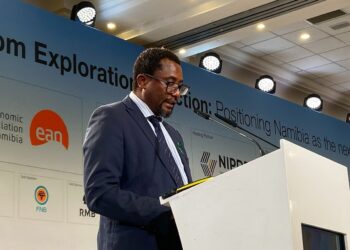
The Ministry of Agriculture, Water and Land Reform says it has granted approval for the construction of a desalination plant with a capacity of 20 million cubic metres per year in the Erongo Region.Â
The development comes in response to rising water demands across the region, driven by development plans, population growth and increased industrial activity.
According to the Minister of Agriculture, Water and Land Reform, Calle Schlettwein, the region relies on three main sources of water – the Omaruru and Kuiseb Delta aquifers, and desalinated water from the existing Orano plant.
However, these sources have reached their sustainable limits of 30 million cubic metres per year, falling short of projected needs.
“Approval for a second desalination plant with a capacity of about 20 million cubic metres has therefore been granted and we envisage construction to start in January 2025,†he said.
He further explained that the construction of the new desalination plant is expected to begin in January 2025, with completion anticipated in early 2027.
“This infrastructure project is meant to ensure a secure and long-term water supply for the region,†he said.
In addition to water security, the Ministry is also committed to improving sanitation infrastructure.
The recently approved Revised Sanitation Strategy aims to upgrade sanitation systems across the region, delivering high-quality sanitation and hygiene services.
“The sanitation systems of all three towns are in need of refurbishment and enlargement. Here too, my Ministry has been tasked through the Revised Sanitation Strategy, which Cabinet had approved in 2023, to ensure that proper and adequate sanitation infrastructure is built to deliver high standard sanitation and hygiene services,†says Schlettwein.
Furthermore, the Ministry is actively promoting the Flexible Land Tenure Act of 2012 which provides land titles to informal residents, particularly targeting low-income communities and aims to offer affordable land ownership to vulnerable citizens.
“It is a pro-poor project, targeting people who live in informal settlements/low-income people (vulnerable communities),†he said.











